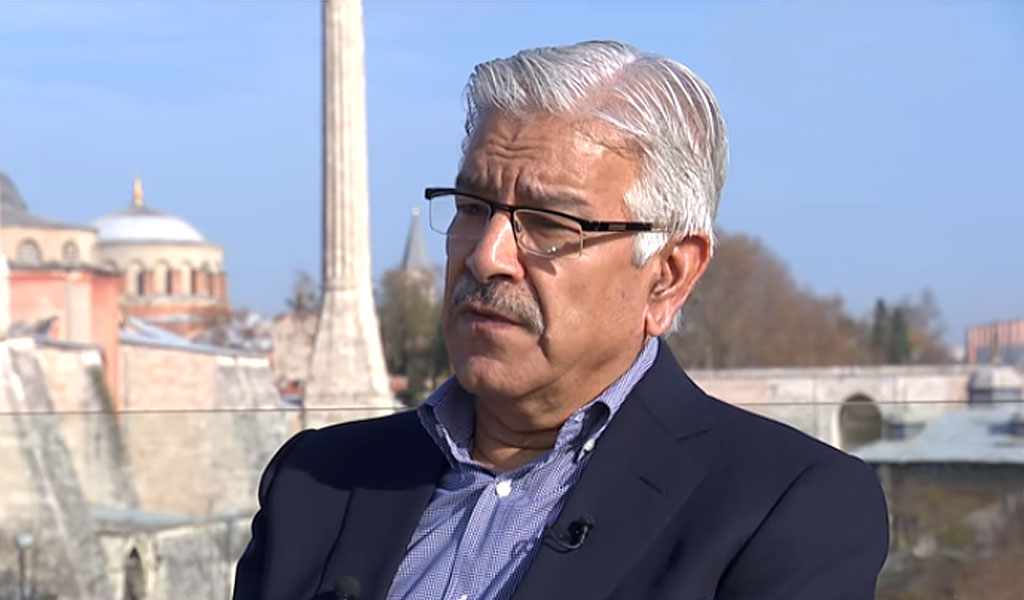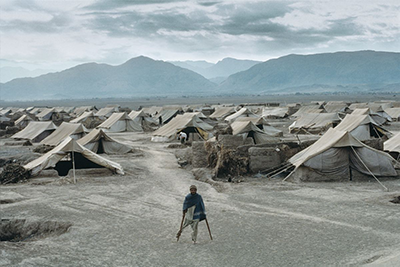Will Pakistan Cut the American Umbilical Cord?
Trump tries to scapegoat Pakistan for US foreign policy failures
Empowering Weak & OppressedTahir Mustafa
Jumada' al-Ula' 15, 1439 2018-02-01
News & Analysis
by Tahir Mustafa (News & Analysis, Crescent International Vol. 46, No. 12, Jumada' al-Ula', 1439)
Donald Trump’s New Year gift to Pakistan was an insulting tweet accusing Islamabad of “lies and deceit.” The self-described “stable genius” said the US had given $33 billion in aid over 16 years yet Pakistan has been harboring “terrorists” that are involved in attacks against US-NATO forces in Afghanistan.
Trump’s insulting tweet was bad enough; then came the announcement from his ambassador to the UN, the Indian-origin Nirmata Kaur Randhawa (aka Nikki Haley) that the $255 million in Foreign Military Financing was also being cut. This is not aid or largesse; it is payment for services Pakistan has already rendered to the US: logistic support, use of its land and airspace, and Pakistan’s war against terrorists in the tribal belt where it has deployed more than 200,000 troops, one-third of its entire army.
Before analyzing the nature of the US-Pakistan relationship and what Islamabad might or ought to do, let us first briefly review the $33 billion figure that Trump’s angry tweet referred to. The figure comes from the Congressional Research Service report on Pakistan that was prepared in November 2017. An annexure to that report tabulates “Direct Overt US Aid and Appropriations for and Military Reimbursements to Pakistan, FY 2002—FY 2018.” The grand total comes to $33.927 billion.
The “stable genius” in the White House (“f… moron” in the words of media mogul Rupert Murdoch and “dotard” according to Kim Jung un of North Korea!) is not interested in detail. The pea-sized brain of this orangutan (with appropriately matching hair color) cannot absorb such figures. Was it the Pakistan-hating Nikki Haley (she changed here name from Nirmata Kaur Randhawa to sound more American) who showed the bottom figure to Trump and told him the US was getting a raw deal from the “duplicitous Pakistanis”? (This Indian woman harbors illusions about becoming president of the US! She also thinks Trump would be a one-term president. Is Trump aware of this?).
Let us break down the $33.9 billion figure and view its appropriation.
1. Economic-related Aid: $11.1 billion ($8.7 billion of this was disbursed as economic support between 2002 and 2011);
2. Security-related Aid: $8.2 billion (half of this — $4.1 billion — was applied toward Foreign Military Financing);
3. Pakistan Counterinsurgency Fund/ Counterinsurgency Capability Fund: $2.3 billion (both the Pentagon and the State Depart-ment independently review this before payments are made);
4. The Coalition Support Fund re-imbursements: $14.5 billion (these are against claims prepared by the Pakistan military for supplies, services and logistics provided to the US-led coalition in its war in Afghanistan. US auditors verify them before authorizing them for release. There is usually a six-month time lag).

In Pakistan there has been mixed reaction to Trump’s threats that have gradually escalated since his year in office. One segment of opinion-makers laments US lack of appreciation of Pakistani sacrifices; another cautions the government not to upset the US (some commentators in the English language media, on the US payroll, want Pakistan to make up with Washington and do what it demands!). Foreign Minister Khawaja Asif said, “Pakistan no longer considers the US an ally.” Amid all this noise, the US Defence Secretary James Mattis (aka “mad dog”) said, the US and Pakistani militaries were still talking to each other. Some US officials have since tried to soft-pedal the threat but the essential message has remained consistent.
What is going on here? The question many informed observers are asking is why can’t Pakistan cut the US umbilical cord; what has it gotten but grief in its dealings with the warlords in Washington? The US has shown no appreciation of Pakistani sacrifices — more than 70,000 dead, infrastructure losses amounting to $120 billion and the destabilization of Pakistani society in the form of terrorist attacks as a result of the US war on Afghanistan — so why continue with this relationship?
The tragedy of the Pakistani elite is that they cannot imagine life without US support. America is their nirvana and acquiring dollars their religion. In this quest they are prepared to suffer every humiliation. The price for such folly is paid by the hapless people that recognize the US’ bullying nature and thus hate it with a passion.
While US-Pakistan relations date back to Pakistan’s emergence in 1947, the most recent courtship is the result of Gen. Pervez Musharraf’s surrender to US demands in the wake of the 9/11 attacks. It took a 10-minute phone call from Gen. Colin Powell, then serving as US Secretary of State, for the chocolate soldier to melt. Musharraf abandoned Pakistan’s 21-year policy on Afghanistan and ditched the Taliban. He claimed he did it in the “national interest,” that all-time bogey trotted out by dictators to prolong their grip on power. The disastrous consequences of Musharraf’s decision are all too obvious.
Trump’s insulting tweet should facilitate a better understanding of the reality facing Islamabad. America is nobody’s friend; its rulers are selfish, greedy, and often quite obnoxious. It will not do to trot out all the favors Pakistan has done for the US to make them see sense.

In the 1960s, Pakistan provided the US a military base in Budhaber (near Peshawar) from where a U-2 spy plane used to fly over Soviet territory. It aroused the Soviets’ wrath with disastrous consequences for Pakistan, especially relating to the Kashmir dispute as well as the disastrous India-Pakistan war in November-December 1971 resulting in the breakup of Pakistan.
In August 1971 Pakistan facilitated Henry Kissinger’s secret visit from Islamabad to Beijing that opened the way for Richard Nixon’s visit two years later. This resulted in US peace talks with North Vietnam that finally enabled America to extricate itself from the disastrous war in Vietnam.
Again, after the Soviet invasion of Afghanistan in 1979 and Pakistan’s crucial role in defeating the Red Army, the US ditched Pakistan. As Secretary of State Hillary Clinton candidly admitted, during Senate hearings in 2012, that after the Soviet defeat, the US abandoned Pakistan to deal with all the problems arising from the Afghan war.
The US, therefore, does not have a stellar record in its dealings with Pakistan. The more crucial question is whether Islamabad is prepared to draw the right conclusions from repeated debacles with the US? It is not without strong policy options.
To start with, Pakistan can withdraw transit facilities for US war materiel (including diapers for its troops serving in Afghanistan; let them soil their pants!). As the former US ambassador to Pakistan Richard Olson pointed out in an op-ed published in the New York Times on January 9, Islamabad has greater leverage over Washington than is usually perceived. “For the past 16 years our military efforts in landlocked Afghan-istan have been dependent on transit through and especially overflight of Pakistani territory,” Olson said. “Without Pakistani cooperation, our [US] army in Afghanistan risks becoming a beached whale,” he argued. And there are no alternatives or good options for the US.
Second, Pakistan should immediately repatriate all Afghans, two to three million of them that have ravaged Pakistan since 1979. Enough hospitality for the Afghans; let the US and the Afghan government deal with them. Far from appreciating Pakistan’s hospitality, all it has gotten is abuse and threats.
Third, Pakistan should seal its border with Afghanistan by installing a fence. It will not be cheap but what options does it have given that terrorists from Afghanistan frequently sneak into Pakistan to carry out murderous acts. The latest of these was on November 30 when three terrorists attacked the Agriculture University in Peshawar killing eight students. During their murderous attack, the terrorists were in mobile contact with their handlers in Afghanistan.
Fourth, Pakistan should cultivate closer links with its neighbors to the West, especially Iran, the Central Asian Republics, and Russia. Relations with China are already very close. America has made its intentions crystal clear: it has chosen Pakistan’s arch-enemy India and is propping it up as a bulwark against China but its most severe consequences would fall on Pakistan.
If America pursues a policy that is clearly detrimental to Pakistan’s interests, why can’t the elite in Pakistan think in terms of protecting their own interests? It is time to realize that America is not a friend but an enemy of Pakistan. It is also the enemy of all Muslims in the world, indeed op-pressed people everywhere.

